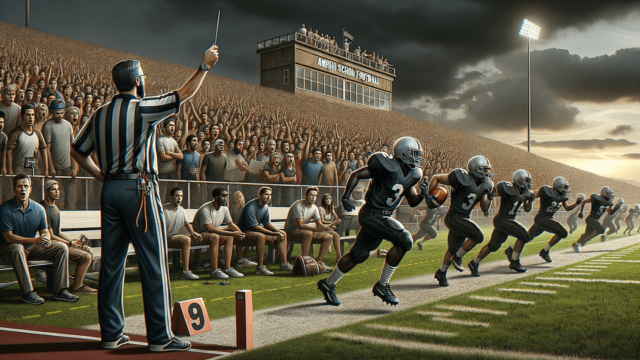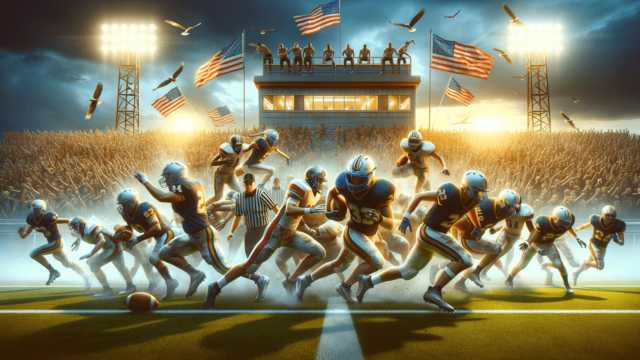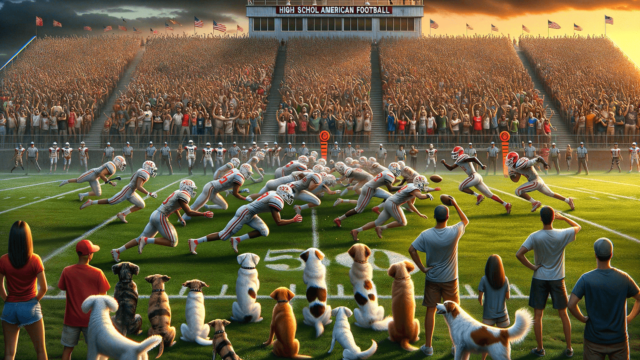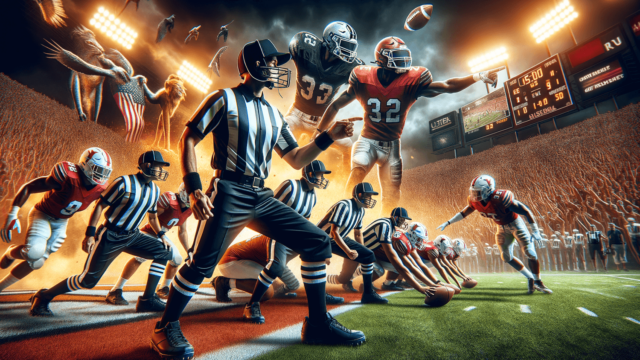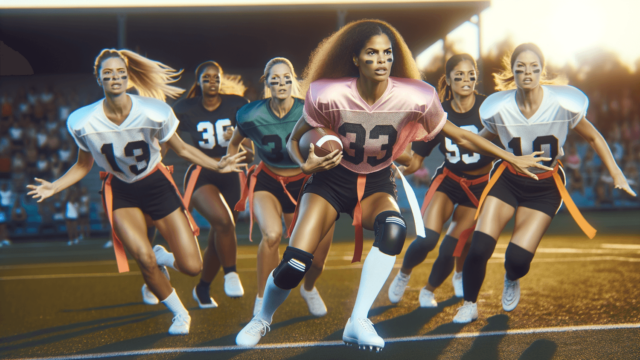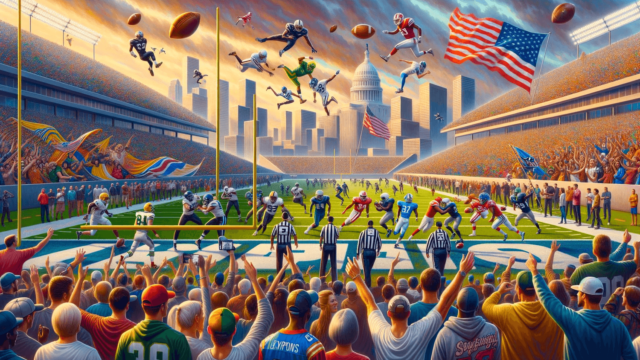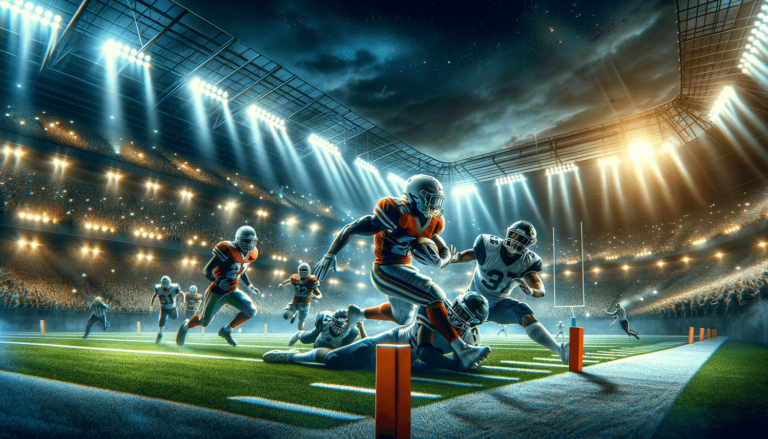
FNL stands for Friday Night Lights, a term used to describe high school football games played on Friday nights, often attracting a large local community following and showcasing young talent. FNL represents the excitement, tradition, and spirit associated with high school football in many regions.
Understanding FNL in Football
FNL, or Friday Night Lights, is a term synonymous with high school football in the United States. It represents the excitement and tradition of community gatherings around local high school football games held on Friday evenings.
The Significance of Friday Night Lights
Friday night football games are an essential part of American culture, often serving as the main social event in small towns and cities. These games foster a sense of community, bring people together in support of their local team, and showcase the talents of young football players.
Boosting Local Economies
FNL games not only contribute to the vibrant culture of the locale but can also help to boost local economies. Food vendors, local businesses, and service providers often benefit from the influx of visitors and fans during Friday night games.
Supporting Athletic Development
A crucial aspect of FNL is the opportunity for aspiring athletes to hone their skills under the bright lights and in front of enthusiastic crowds. The competitive atmosphere encourages continuous improvement, as players have the chance to showcase their abilities and potentially attract attention from college and professional scouts.
The Impact of Friday Night Lights on Football
Friday Night Lights has had a profound influence on American football, both on and off the field. This phenomenon has generated numerous aspects of popular culture, including television shows, movies, and books.
Media and Entertainment
Perhaps the most famous adaption of FNL is the book, movie, and television series of the same title. By focusing on the lives of high school football players, coaches, and their families, these stories provide a glimpse into the passion, challenges, and triumphs associated with participating in high school football.
Coach and Player Development
The exposure generated by FNL often propels promising players to college programs and beyond. Additionally, it enables coaches at all levels to exchange strategies, ideas, and experiences, fostering a widespread development of football knowledge and expertise.
Embracing the Friday Night Lights Experience
To truly grasp the essence of FNL, attending a local high school football game is a must for football enthusiasts. It offers an authentic taste of American football culture, combining exciting game action with community engagement and fostering an inclusive atmosphere that transcends the sport itself.
School and Community Pride
FNL provides an opportunity for schools and communities to showcase their spirit and express pride in their athletic teams. Local fans, alumni, and students come together to wear their school colors, cheer on their team, and participate in various pregame and halftime festivities. Engaging in FNL events helps to foster a sense of belonging, camaraderie, and tradition.
Lessons Beyond the Gridiron
High school football players also benefit from the FNL experience through valuable life lessons learned on and off the field. As a team sport, football encourages players to adopt the qualities of teamwork, accountability, and discipline. Football coaches often emphasize the importance of strong character, perseverance, and goal-setting, valuable attributes that extend beyond the sport.
Sportsmanship and Fair Play
FNL showcases the significance of sportsmanship and fair play, developing a mutual respect among players, coaches, and supporters. This emphasis fosters an environment where athletes can compete at their best while treating opponents, officials, and teammates with respect, dignity, and grace.
Football Fever in College and Beyond
With many high school football players viewing FNL as a stepping stone to a college or professional career, Friday Night Lights has become a crucial part of football recruitment and development. College scouts often attend FNL games to identify and evaluate potential recruits for their athletic programs, leading to scholarships and opportunities for higher education.
Community Involvement and Local Charities
Friday Night Lights events often serve as an excellent platform for schools and communities to raise funds and create awareness for local charities or causes. Through raffles, auctions, and other fundraising activities, FNL games can have a significant impact on the wellbeing of those in need and help support essential local initiatives.
FAQ Section
In this section, we address common questions related to the FNL phenomenon in high school football, offering further insights and information about the impact and significance of these community events.
What day of the week are high school football games usually played?
High school football games are most commonly played on Friday nights, hence the term Friday Night Lights. However, some games can also occur on Thursdays or Saturdays, depending on the school and scheduling requirements.
Why are high school football games generally held on Friday nights?
Fridays are a traditional choice for high school football games, as they provide a suitable end-of-the-week activity, allowing people to unwind and socialize. Scheduling games on Friday evenings also avoids conflicts with college and professional football games, usually held on Saturdays and Sundays, respectively.
How can I attend a Friday Night Lights football game?
To attend a FNL game, check the local high school’s athletic department website or social media account for the scheduling of football games. You can also inquire with the school directly or seek information from local newspapers, community message boards, and school newsletters.
Do FNL games receive coverage in the media?
The media coverage of FNL games depends on the location, popularity, and level of competition. While local newspapers and TV networks might cover significant or traditional rival matches, games featuring highly-ranked teams or top recruits occasionally garner attention from regional or national sports media.
What are some ways FNL games can help young athletes?
FNL games offer multiple benefits to student-athletes, such as the exposure needed to advance their athletic careers, foster character development through teamwork and discipline, and inspire them with goals and aspirations beyond high school football.
Featured Posts
- No pillar pages found.
